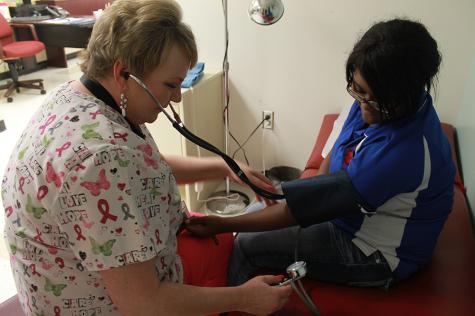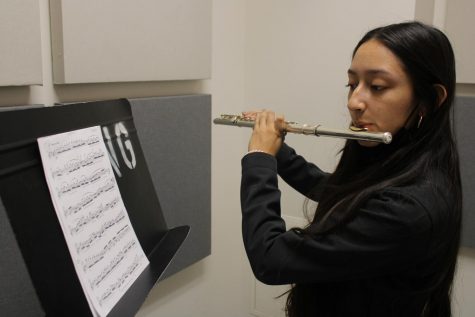Clinic laws
October 3, 2014
 Although it may be tempting to bring over-the-counter medication to school to relieve headaches throughout the day, this behavior is not allowed. Instead of bringing pain killers in small baggies, school nurses Donna Tate and Dawn Sexton advise students to request forms that will allow them to bring their medication without getting in trouble.
Although it may be tempting to bring over-the-counter medication to school to relieve headaches throughout the day, this behavior is not allowed. Instead of bringing pain killers in small baggies, school nurses Donna Tate and Dawn Sexton advise students to request forms that will allow them to bring their medication without getting in trouble.
“Advil [or any other drug] can come to school with doctor’s orders and parent permission,” Tate said. “So say, you went to your doctor and they diagnosed you with severe headaches, [then] they can fill out a form indicating that you need to have Advil [or any other drug] at school as needed for your headaches.”
The form must indicate the name of the medication, the dosage, how it needs to be administrated and the frequency of the dosage. The medication policy indicates that only medication that needs to be taken during mealtimes, at a specified time by a physician or four times or greater during the day is allowed on campus. Just like there are restrictions on what can be brought to school, there are restrictions on whom can visit the nurse’s office.
“We only have three beds,” Tate said. “That is the predominate reason why we request that [students] don’t come in with small minor things like, you know, an upset stomach if they ate too much at lunch. Then the child that truly needs a bed and truly needs our care [could] possibly be displaced, because we have nowhere to assess them or put them.”
The nurses go by variations of the Five B’s to determine whether or not students should be treated or if it was an unnecessary visit. The Five B’s consist of having difficulty breathing, bleeding, barfing and if the student has broken bones or at a birthing stage.
“We try to give [teachers] the basis of the Five B’s to go by, but another scenario that we tell [teachers] is that ‘when in doubt, send them out,’” Sexton said. “Do not send a student for a paper cut [and to] really make sure that it’s legitimate enough for the student to be missing class time.”
Although the nurses prefer that students with minor aches and pains do not miss class, they are willing to make exceptions on a case-by-case basis.
“If they’re not comfortable in class so that they can’t concentrate in class due to any type of pain, for the time being, we do need to see them and assess them,” Sexton said.






